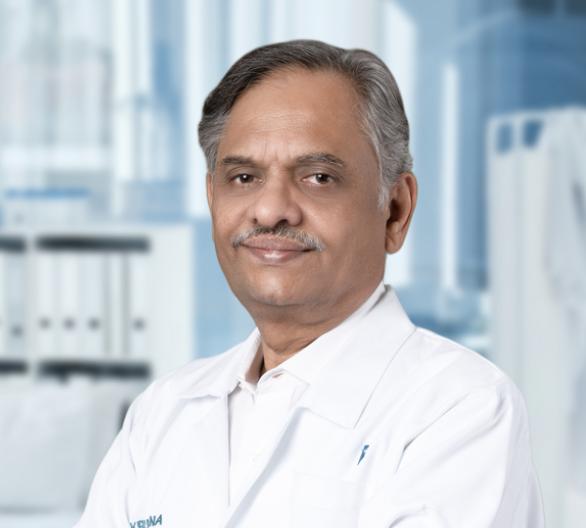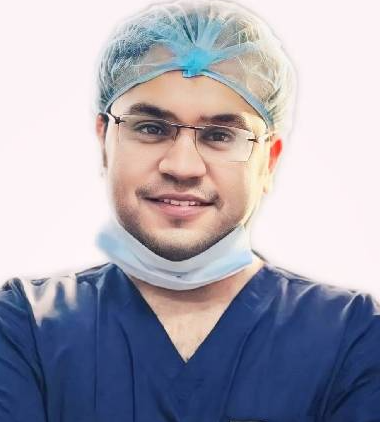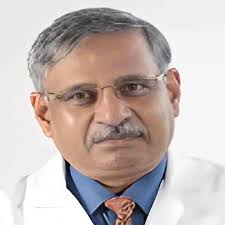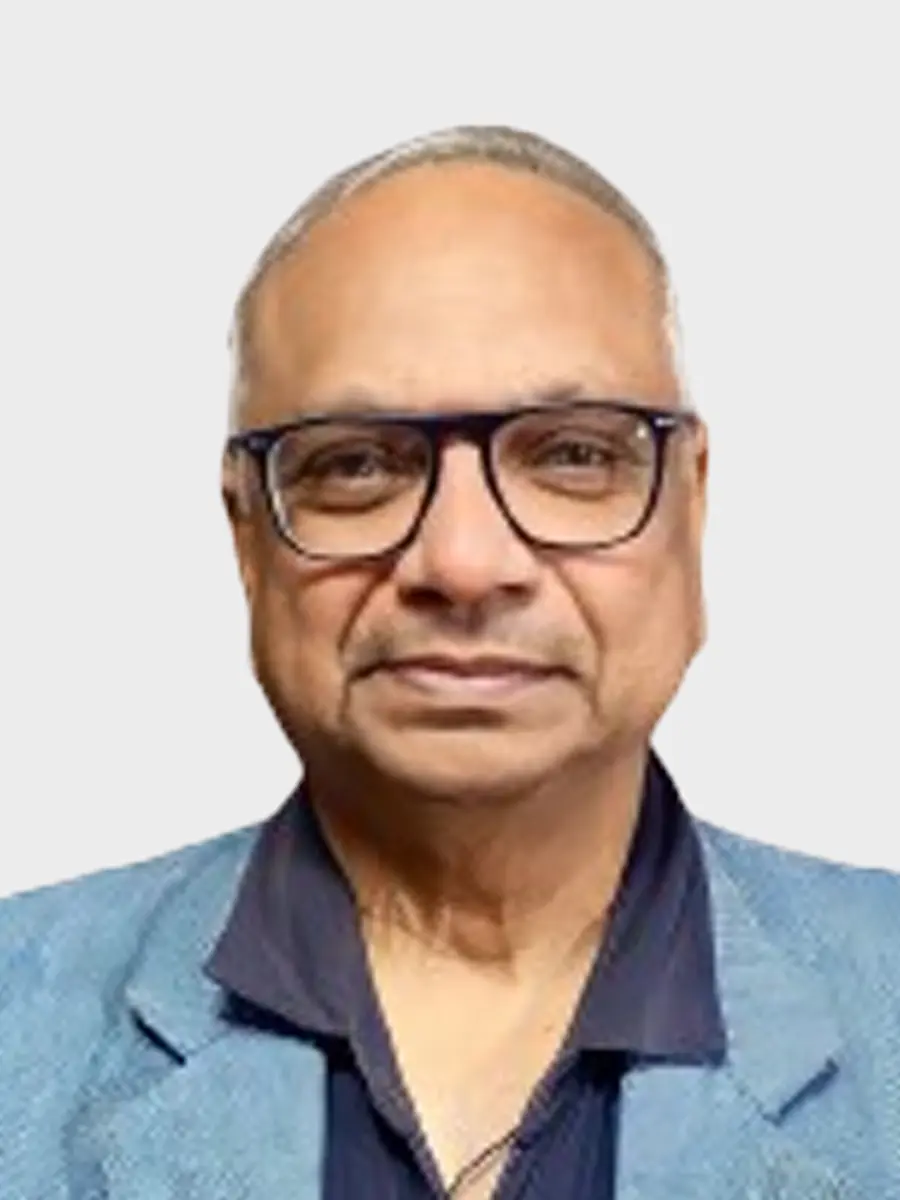Deep Brain Stimulation Surgery - Procedure, Risks & Recovery

Treatment Duration
3 Hours
------ To ------4 Hours
Treatment Cost
₹ 3,00,000
------ To ------₹ 15,00,000

Table of Contents
- Conditions treated with Deep Brain Stimulation Surgery
- How is Deep Brain Stimulation performed?
- What to expect before and on the day of Deep Brain Stimulation Surgery?
- What to expect after the Brain Stimulation Surgery?
- When is consultation with the doctor needed?
- Risks of Delayed Deep Brain Stimulation Surgery
- Cost of the Surgery
Deep Brain Stimulation surgery is an advanced procedure to regulate abnormal electrical signals in the brain. It provides relief to patients with dystonia, epilepsy, and Parkinson's disease. The surgery involves the implantation of electrodes in the brain and an impulse generator in the chest.
|
Surgery Name |
Deep Brain Stimulation Surgery |
|
Alternative Name |
Brain Pacemaker |
|
Disease Treated |
Parkinson’s disease, Dystonia, Essential tremor, Obsessive-compulsive disorder, Epilepsy |
|
Benefits of the Surgery |
Results can be tailored to your specific needs, The effects of surgery are reversible, Stimulation can be reduced or adjusted to minimize side-effects |
|
Treated By |
Neurosurgeon |
You can check Deep Brain Stimulation Surgery Cost here.
Conditions treated with Deep Brain Stimulation Surgery
Deep brain stimulation surgery effectively provides relief from the symptoms of various movement disorders. Some of the diseases in which the procedure is approved are:
- Parkinson’s disease
- Dystonia
- Essential tremor
- Obsessive-compulsive disorder
- Epilepsy
Research is underway to expand the use of this procedure in various other neurological conditions. These are Alzheimer’s disease, Traumatic brain injury, multiple sclerosis, Anorexia Nervosa, depression and chronic pain.
Expert Doctors (10)
NABH Accredited Hospitals (10)


How is Deep Brain Stimulation performed?
The surgery takes place in two steps. In the first step, the surgeon inserts the electrodes into the brain. During the second step, which is usually 1-week after the first step, the surgeon implants the pulse generator in the chest.
Phase I
- With the help of imaging techniques, the surgeon identifies the area they need to insert the electrodes.
- In most cases, the patients are awake to test the effect of stimulation.
- The surgeon numbs the area of the scalp and creates a hole in the skull.
- The surgeon then inserts the electrode in the hole and guides the electrodes for accurate placement.
- Once the lead is accurately placed, the surgeon closes the incision, stitches it and covers it with bandages.
- The surgeon also leaves the wire under the scalp to attach it to the stimulator.
Phase II
- The patient is under general anaesthesia during this procedure. The surgeon opens the scalp incision and takes out the wire.
- A small cut under the collarbone is made by the surgeon to place the neurostimulator. The surgeon then attaches the wire to the neurostimulator.
- Ten days after the procedure, the doctor activates the neurostimulator and programs it according to the need of the patient.
What to expect before and on the day of Deep Brain Stimulation Surgery?
Before the Deep Brain Stimulation Surgery
- The neurosurgeon will evaluate your overall health and medical history to determine your candidature to undergo deep brain stimulation.
- Once you agree to undergo deep brain stimulation surgery, you must inform the surgeon about the previous surgeries. You should also tell about allergies to medications or if you have some concerns regarding the anaesthetics.
- The doctor may provide either local or general anaesthesia to the patient.
- The doctor may also perform several tests, such as electrocardiogram, lung tests, and blood tests.
- Consult your physician regarding discontinuing drugs for chronic diseases, such as diabetes or cardiovascular conditions.
- The doctor may also advise you to stop taking certain blood thinners and anti-inflammatory drugs.
- The doctor further recommends you avoid consuming alcohol and nicotine at least one week before and two weeks after the surgery to enhance healing and reduce complications.
- You may also ask questions regarding the duration, recovery, and outcome.
On the Day of the Deep Brain Stimulation Surgery
You may expect the following on the day of surgery:
- Take medications as advised by your doctor before reaching the hospital.
- The doctor may also instruct you to wash your hair with antibacterial soap or shampoo to prevent surgical site infections.
- The doctor and the administration staff may ask you or your family member to fill out the consent form and sign the other documents as a part of administration procedures.
- The doctor also asks you to remove the hairpins, jewellery, contact lenses or body piercings before surgery.
During the Deep Brain Stimulation Surgery
You may expect the following during the surgery:
- The paramedical staff asks you to wear a hospital gown.
- The surgeon will stabilize your head with the help of a frame. The surgeon secures the frame to your head through the screws. Next, the surgeons will apply local anaesthesia at the head area, which is in contact with screws.
- The doctor attaches an IV line and administers a sedative to make you relax.
- Most patients are awake during the initial part of the surgery, i.e., implantation of electrodes. However, some patients do not tolerate and require anaesthesia.
- In the next phase of surgery, the patient is given general anaesthesia.
- The doctor and other staff members monitor the vital parameters throughout the surgery.
What to expect after the Brain Stimulation Surgery?
After the Deep Brain Stimulation Surgery
You may expect the following after the surgery:
- The surgeon will discharge you from the hospital 1-2 days after the electrode implantation surgery. You may expect to return home the same day after your stimulation implantation procedure.
- The doctor will remove your stitches around 10-12 days after the surgery. However, you should keep the area dry by placing bandages. You need to change the dressing daily or as directed by your doctor. Avoid scratching the wound area.
- Avoid light activities and sexual activity at least two weeks after surgery. Do not engage yourself in strenuous activities for at least 4-6 weeks after surgery.
- Avoid raising your arms above shoulders or stretching your neck.
- Most patients return to routine activities within 4-6 weeks after the procedure.
- Your doctor may prescribe medicine if you have constipation.
- You should gradually increase your diet and avoid any dental procedures to avoid any risk of infection.
First Follow-up Appointment
You may expect the following on the first follow-up appointment:
- The surgeon may advise you to visit the hospital 10-12 days after each surgery.
- The doctor may check the recovery during the first follow-up visit and monitor your vital parameters.
- The surgeon may clean the wound and/or remove the sutures during the visit.
- The surgeon may also provide you with the next scheduled follow-up visit date.
- You must ask any questions or inform the doctor about any symptoms of concern. You should make a list of questions you need to ask the surgeon.
- The surgeon will activate the pulse generator device 3-4 weeks after the implantation.
- Your doctor may also program the pulse generator according to your need. It takes around 3-4 sessions to achieve the optimal programming of the pulse generator.
When is consultation with the doctor needed?
You should immediately consult with your doctor in case of the following symptoms:
- If there is any bleeding or significant swelling at the incision site.
- You have a sudden alteration in vision or loss of vision.
- You have a fever and have a feeling of discomfort.
- You have persistent headaches that do not go away with rest or over-the-counter medications (ask your doctor before taking any medicines).
Risks of Delayed Deep Brain Stimulation Surgery
- Deep brain stimulation surgery provides significant relief in the symptoms of several neurological conditions.
- However, delay in the procedure significantly reduces the quality of the life of patients. In addition, because of frequent and persistent symptoms, the patients may go into depression and may have suicidal thoughts.
Cost of the Surgery
The cost of Deep Brain Stimulation Surgery ranges from ₹3,00,000 to ₹15,00,000. The cost varies based on the following factors:
- Type of Deep Brain Stimulation Surgery
- Age of the patient
- The medical condition of the patient
- The type of hospital facility availed - individual room or shared.
| Conditions Name | Cost Value |
| Deep Brain Stimulation Surgery | ₹3,00,000 to ₹15,00,000 |
Frequently Asked Questions (FAQ)
What are some Myths and Facts about Deep Brain Stimulation Surgery?
- Myth: Deep Brain Stimulation surgery is experimental
Fact: It is not true. The surgery was initiated in 1987 and is now considered a part of standard care. USFDA approved it in 1997, and more than 1 50,000 patients are implanted with DBS devices. So, DBS is not an experimental treatment. - Myth: Deep Brain Stimulation surgery is only used when symptoms are unmanageable
Fact: It is an incorrect fact. Although initially, the DBS was approved for patients with advanced Parkinson's disease. However, in 2015, the USFDA approved the procedure in patients with early Parkinson's disease. - Myth: Deep Brain Stimulation Surgery is extensively invasive and requires a lengthier recovery period
Fact: DBS implantation involves neurological surgery. With the advancement in technology for brain surgery, DBS implantation has relatively fewer complications. The recovery is excellent, and people return to normal life within 4-6 weeks.
More Treatment options
Last Updated on: 26 November 2022
Author
HexaHealth Care Team
HexaHealth Care Team brings you medical content covering many important conditions, procedures falling under different medical specialities. The content published is thoroughly reviewed by our panel of qualified doctors for its accuracy and relevance.
Latest Health Articles































